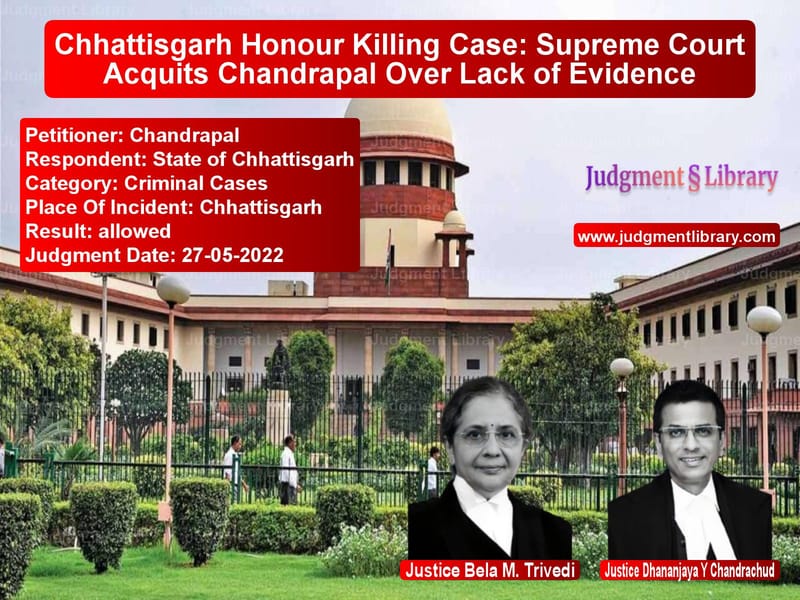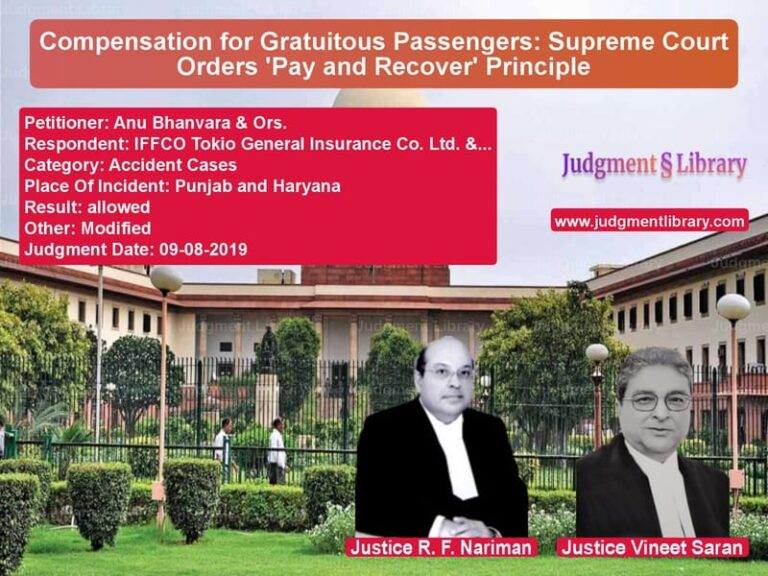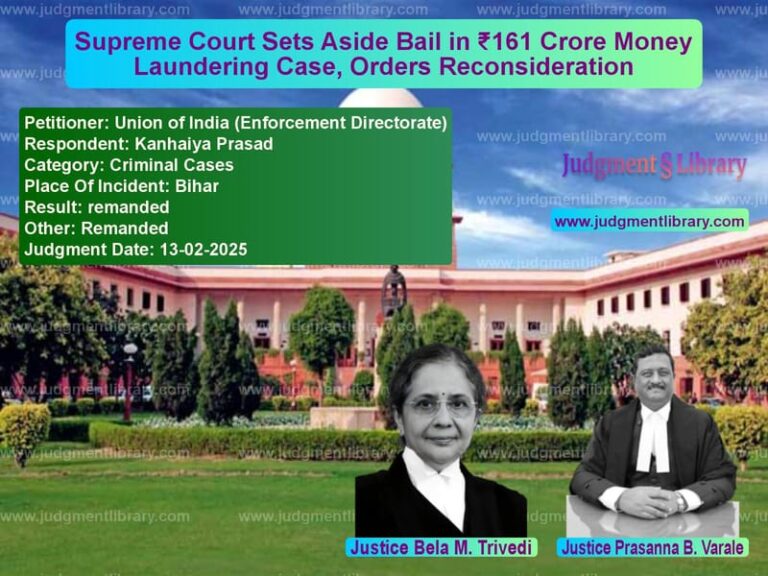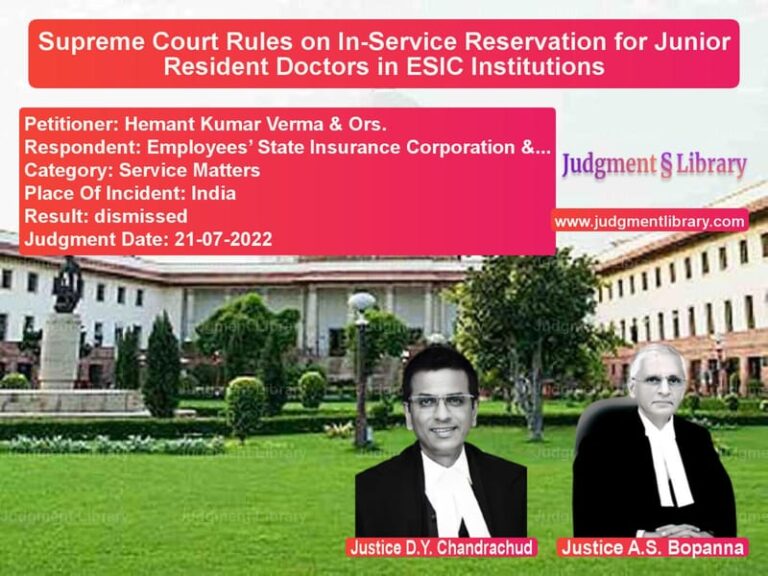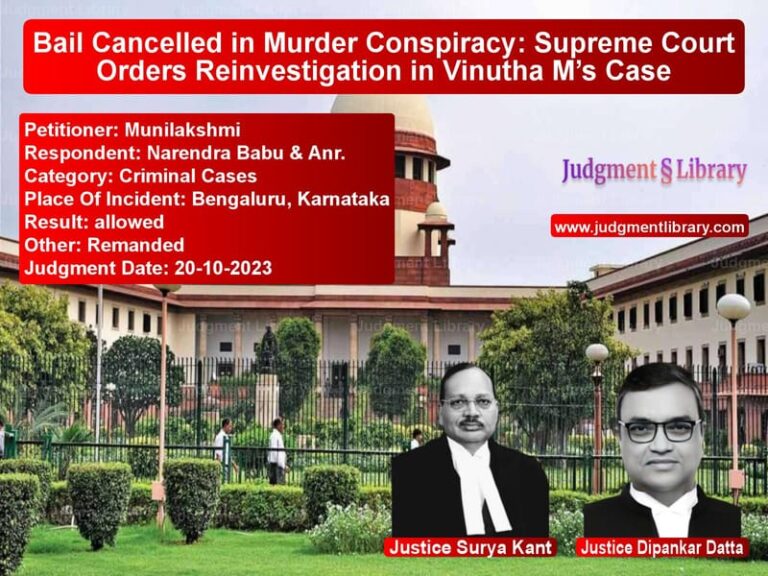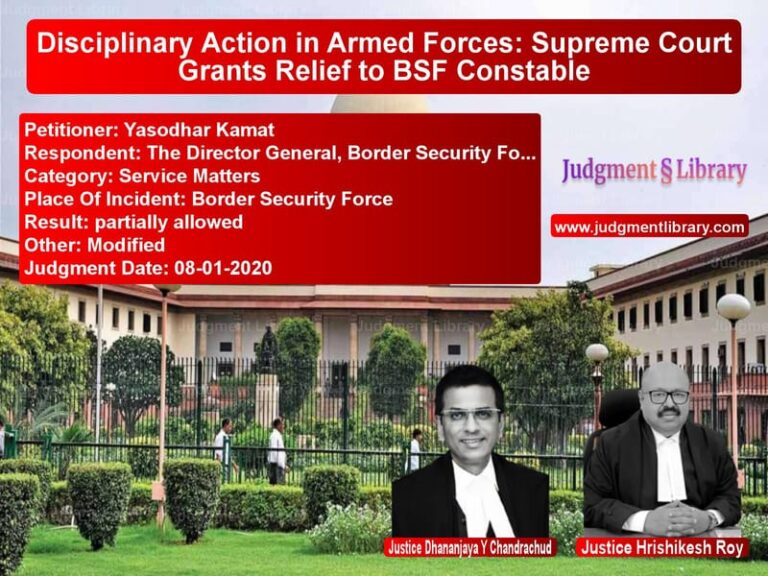Chhattisgarh Honour Killing Case: Supreme Court Acquits Chandrapal Over Lack of Evidence
The Supreme Court of India has delivered a landmark judgment in the case of Chandrapal vs. State of Chhattisgarh, setting aside the conviction of Chandrapal for the alleged honour killing of a young couple. This case, which dates back to 1994, revolved around the deaths of Kumari Brindabai and Kanhaiya Siddar, whose bodies were found hanging from a cashew tree under suspicious circumstances. The prosecution had alleged that the accused, along with others, murdered the couple and staged their deaths as suicides. However, the Supreme Court ruled that the evidence presented was insufficient to sustain a conviction.
Background of the Case
The case stemmed from the deaths of Kumari Brindabai and Kanhaiya Siddar in December 1994. The two victims, belonging to different castes, were reportedly in a romantic relationship, which was strongly opposed by their families.
The timeline of events is as follows:
- 02 December 1994: The couple went missing from their village in Chhattisgarh.
- 11 December 1994: Their bodies were discovered hanging from a tree in Kajubadi (Cashew Nursery).
- 12 December 1994: Postmortem reports indicated death due to asphyxia caused by hanging, with no conclusive proof of homicide.
- 1998: The Sessions Court convicted Chandrapal and three others under Sections 302 and 201 of the Indian Penal Code (IPC).
- 2015: The High Court of Chhattisgarh upheld Chandrapal’s conviction but acquitted the other accused.
- 2022: The Supreme Court reviewed the case and acquitted Chandrapal due to a lack of evidence.
Key Legal Issues
- Whether the deaths of the victims were homicidal or suicidal.
- Whether the evidence provided, including an extra-judicial confession, was sufficient for conviction.
- Whether the theory of “last seen together” could be relied upon to establish guilt.
Arguments by the Appellant (Chandrapal)
The defense, represented by Advocate Akshat Shrivastava, argued that:
- The prosecution failed to prove that the deaths were homicidal.
- The medical reports suggested that the deaths were due to suicide.
- The prosecution relied on a weak extra-judicial confession from co-accused Videshi, which lacked credibility.
- The “last seen together” theory was unreliable since the victims were missing for ten days before their bodies were discovered.
- There was no direct evidence linking Chandrapal to the alleged crime.
Counterarguments by the Respondent (State of Chhattisgarh)
The prosecution contended that:
- The couple was murdered by Chandrapal and others, who disapproved of their relationship.
- Chandrapal was last seen with Kanhaiya before his disappearance.
- The extra-judicial confession made by co-accused Videshi implicated Chandrapal.
- The accused attempted to stage the crime as a suicide to mislead investigators.
Supreme Court’s Observations
1. Insufficient Evidence to Prove Homicide
“For the purpose of proving the charge for the offence under Section 302, the prosecution must establish ‘homicidal death’ as a primary fact.”
The Court noted that the medical evidence did not conclusively establish that the deaths were homicidal.
2. Weak Extra-Judicial Confession
“An extra-judicial confession is a weak piece of evidence and unless it inspires confidence, it cannot be the sole basis for conviction.”
The Court ruled that the alleged confession by co-accused Videshi could not be relied upon, as it was inconsistent and lacked corroboration.
3. Unreliable ‘Last Seen Together’ Theory
“When there is a long gap between the accused being last seen with the deceased and the discovery of the dead bodies, the ‘last seen’ theory loses its probative value.”
The Court highlighted that the prosecution failed to explain the events between 02 December 1994 and 11 December 1994.
Final Judgment
The Supreme Court ruled:
- The prosecution failed to prove beyond a reasonable doubt that Chandrapal was guilty of murder.
- The reliance on weak circumstantial evidence and a dubious extra-judicial confession was not sufficient for conviction.
- Chandrapal was acquitted and ordered to be released immediately.
Impact of the Judgment
This judgment has significant legal implications:
- Higher Burden of Proof in Honour Killing Cases: The ruling emphasizes that accusations of honour killings must be backed by strong and credible evidence.
- Limited Scope of Extra-Judicial Confessions: The Court reinforced that such confessions must be corroborated by substantial evidence.
- Judicial Scrutiny of ‘Last Seen Together’ Evidence: The ruling sets a precedent that such theories must be applied with caution.
- Fair Trial and Due Process: The judgment underscores the importance of a fair trial and the need to prevent wrongful convictions based on weak evidence.
The Supreme Court’s verdict in this case serves as a reminder that in criminal trials, conviction must be based on conclusive proof rather than suspicion. The ruling upholds the fundamental principles of justice and ensures that an accused is not convicted unless proven guilty beyond a reasonable doubt.
Petitioner Name: Chandrapal.Respondent Name: State of Chhattisgarh.Judgment By: Justice Bela M. Trivedi, Justice Dhananjaya Y Chandrachud.Place Of Incident: Chhattisgarh.Judgment Date: 27-05-2022.
Don’t miss out on the full details! Download the complete judgment in PDF format below and gain valuable insights instantly!
Download Judgment: chandrapal-vs-state-of-chhattisgar-supreme-court-of-india-judgment-dated-27-05-2022.pdf
Directly Download Judgment: Directly download this Judgment
See all petitions in Murder Cases
See all petitions in SC/ST Act Case
See all petitions in Judgment by Bela M. Trivedi
See all petitions in Judgment by Dhananjaya Y Chandrachud
See all petitions in allowed
See all petitions in supreme court of India judgments May 2022
See all petitions in 2022 judgments
See all posts in Criminal Cases Category
See all allowed petitions in Criminal Cases Category
See all Dismissed petitions in Criminal Cases Category
See all partially allowed petitions in Criminal Cases Category

